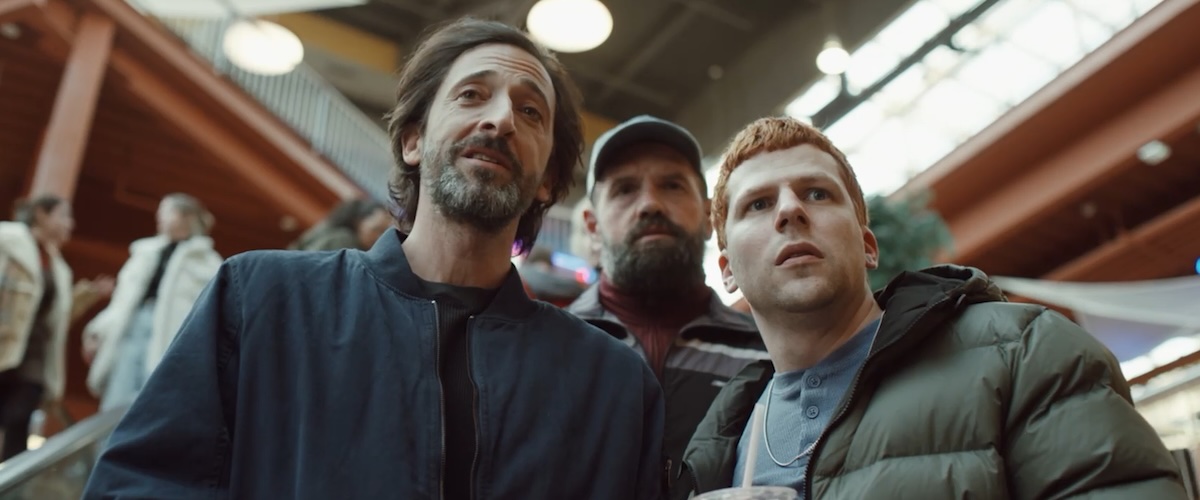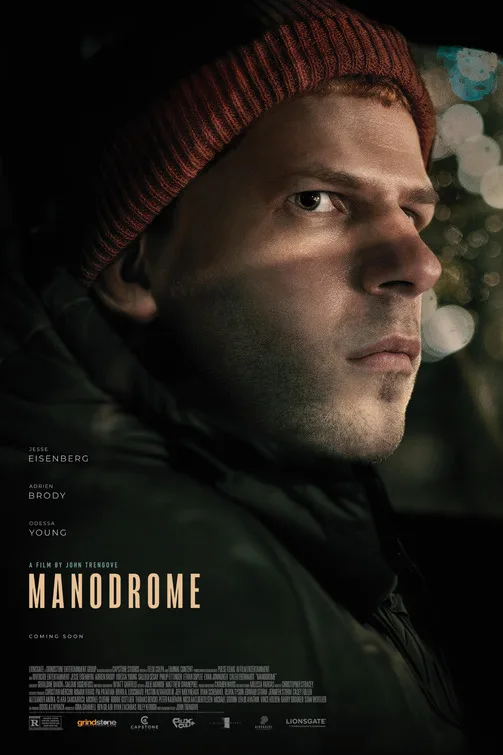John Trengrove's "Manodrome" is an incel-era update of "Fight Club," a story of an average guy whose inner demons are unleashed when he meets a group of men trying to reclaim their perceived place in the world. "Manodrome" weaves modern themes like the emergence of toxic incels across the internet into a tale of a loner who becomes emboldened by the wrong people, echoing "Taxi Driver" as much as the Chuck Palahniuk classic but failing to tie any of its hot-button issues into a coherent statement or character study. It's a hollow provocation with about as much to say about the human condition as an internet troll who learned a few buzzwords this morning and wants to spew them at somebody to feel superior. The cast gives their all, but the film ultimately has nothing to offer.
"Manodrome" sets its milieu in its first scene as a breast-feeding Uber passenger (a cameo from producer Riley Keough) is startled by the intense glare of her driver Ralphie (Jesse Eisenberg). One imagines he would complain about her to a group of similarly aggressive dudes later if he had any friends, but he's only got one, a buddy named Jason (Philip Ettinger), who he was fired with from a better job recently. The loss of work has made Ralphie's home life even more stressful, given that his girlfriend, Sal (Odessa Young), is very pregnant. How can Ralphie make ends meet in a world in which men are being trampled so often? No wonder he goes to the gym every day to let off steam.
That's where Jason convinces Ralphie to meet with a friend of his, a self-help Men's Rights Activist named Dan (a charismatic Adrien Brody). As the Tyler Durden of this dynamic, Dan encourages celibacy and basically runs a dude cult of guys who have left their partners behind and chant about taking back their God-given masculinity. One of the key problems with Trengrove's script is that Dan and his crew of followers are woefully underdeveloped. It's unclear what they do beyond the occasional meeting and wandering around until one runs into the wife he left behind. I longed for an actual fight club or something about Brody's character that would allow us to understand why Ralphie is attracted to them in the first place.
Instead, Trengrove's script shifts, turning Ralphie into a violent sociopath who commits hate crimes and then descends into even more extreme violence. But Trengrove never connects his ideas. One senses that Ralphie is on the verge of a breakdown before he meets Dan—the impending pregnancy, confused sexuality, and dwindling finances could have turned Ralphie into the character he is in the final act without the incel subplot, which makes everything perfunctory and random instead of insightful.
To be fair, Eisenberg is daringly playing against type, not the first actor one would think of as a musclebound meathead on the verge of a violent explosion. I've long admired Eisenberg's career choices; he's clearly able to take on projects for more than just financial interest. And Brody and Young are good enough, making their lack of character development all the more frustrating. The failure to fill out Young's Sal as a character is particularly egregious as the film seems to be arguing against objectification but makes its one female role the two-dimensional pregnant girlfriend.
Fans will argue that "Manodrome" is about how groups like Dan's weaponize people who are already broken, putting them back together in a way that makes them even more dangerous than they ever could have been apart. OK, but where does that take us? What does it say beyond spotlighting a new form of radicalization? "Manodrome" is such a frustrating exercise that I may need a self-help group to work through my feelings about it. Or, more accurately, that it left me with so few of them.
Now playing in theaters and available on digital platforms on November 17th.




















